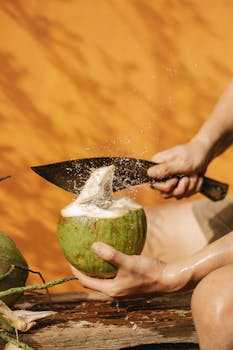
**
Summer marketing campaigns: A time for fun, or a critical moment to secure your brand's future? While the term "silly season" conjures images of lighthearted campaigns and relaxed strategies, the reality is far more demanding. For brands across all sectors, summer is now a mission-critical period, demanding a strategic and highly targeted approach. This isn't just about boosting sales; it's about securing brand loyalty, building market share, and laying the foundation for successful fall and holiday campaigns.
The Evolution of Summer Marketing: From Silly to Serious
The traditional perception of summer as a "silly season" stems from a time when marketing activity slowed down significantly. Consumers, it was believed, were too preoccupied with vacations and outdoor activities to engage with brand messaging. This perception, however, is woefully outdated. Today's consumer is always connected, always engaged, and always looking for value and entertainment.
The rise of social media, the explosion of mobile commerce, and the ever-increasing importance of digital marketing have fundamentally shifted the landscape. Summer is no longer a time to coast; it's a prime opportunity to reach a highly engaged and receptive audience.
The Summer Consumer: A Shifting Landscape
Understanding the summer consumer is crucial for effective campaign planning. Their behaviour changes dramatically compared to other seasons:
- Increased leisure time: More free time means more opportunities for brand engagement through activities like outdoor events, travel promotions, and social media interactions.
- Focus on experiences: Consumers are more likely to invest in experiences rather than material goods. This shift requires brands to create memorable experiences that resonate with their target audience.
- Heightened online engagement: With more time on their hands, consumers spend more time online, offering brands a wider reach through targeted digital advertising and social media campaigns.
- Travel and relocation: Summer often involves travel and changes in location, necessitating adaptable and location-specific marketing strategies.
- Increased sensitivity to pricing and value: Consumers are still mindful of budgets, particularly if facing increased costs due to travel or other seasonal expenses.
Summer Marketing Strategies: Maximizing Your Reach and Impact
To capitalize on the opportunities presented by summer, brands need to implement sophisticated strategies that consider the unique aspects of this season. Here are some key elements:
1. Leverage Seasonal Trends and Events:
Summer presents many unique opportunities such as:
- Summer vacation campaigns: Partnering with travel brands, creating travel-related content, or offering travel discounts can attract a significant audience.
- Outdoor-focused promotions: Highlighting products and services related to outdoor activities like camping, hiking, or watersports can be incredibly effective.
- Summer festivals and events: Sponsoring or participating in relevant summer events allows brands to connect with their target audience in a meaningful way. This could include concerts, sporting events, or local community celebrations.
2. Embrace Experiential Marketing:
Experiential marketing is a powerful tool for creating memorable brand interactions. Here are some creative summer-specific ideas:
- Pop-up shops and events: Create temporary retail spaces in high-traffic areas to engage directly with consumers.
- Interactive installations and activations: Develop eye-catching displays that draw in consumers and encourage social media sharing.
- Gamification and contests: Boost engagement by introducing fun, interactive elements to summer campaigns.
3. Master the Art of Summer Social Media Marketing:
Social media is a critical channel for summer marketing. Effective strategies include:
- Visually stunning content: Focus on high-quality images and videos showcasing summer themes and lifestyles.
- Targeted advertising: Utilize social media's targeting capabilities to reach specific demographics and interests.
- Influencer marketing: Collaborate with relevant influencers to reach a wider audience and build brand credibility.
- User-generated content: Encourage consumers to share their experiences with your brand using a dedicated hashtag.
4. Don't Forget Email Marketing:
While social media dominates, email remains a potent tool:
- Summer-themed email newsletters: Share seasonal promotions, discounts, and engaging content.
- Personalized email campaigns: Tailor email content based on consumer preferences and past purchases.
Measuring Summer Marketing Success: Key Metrics
Measuring the effectiveness of your summer marketing campaigns is crucial. Key metrics to track include:
- Website traffic: Monitor increases in website visits and engagement.
- Social media engagement: Track likes, shares, comments, and follower growth.
- Sales conversions: Measure the number of sales directly attributable to your summer campaigns.
- Brand awareness: Assess changes in brand recognition and sentiment.
Conclusion: Summer - The Season of Strategic Opportunity
The "silly season" label is a misnomer. Summer presents a unique and vital opportunity for brands to connect with their audience, drive sales, and build lasting relationships. By understanding the summer consumer, implementing effective strategies, and carefully tracking results, brands can transform this season from a period of potential stagnation into a period of significant growth and success. The key is a well-planned, highly targeted approach that embraces the unique opportunities and challenges presented by the summer months. Don't let this mission-critical season pass you by – strategize, execute, and reap the rewards.




















